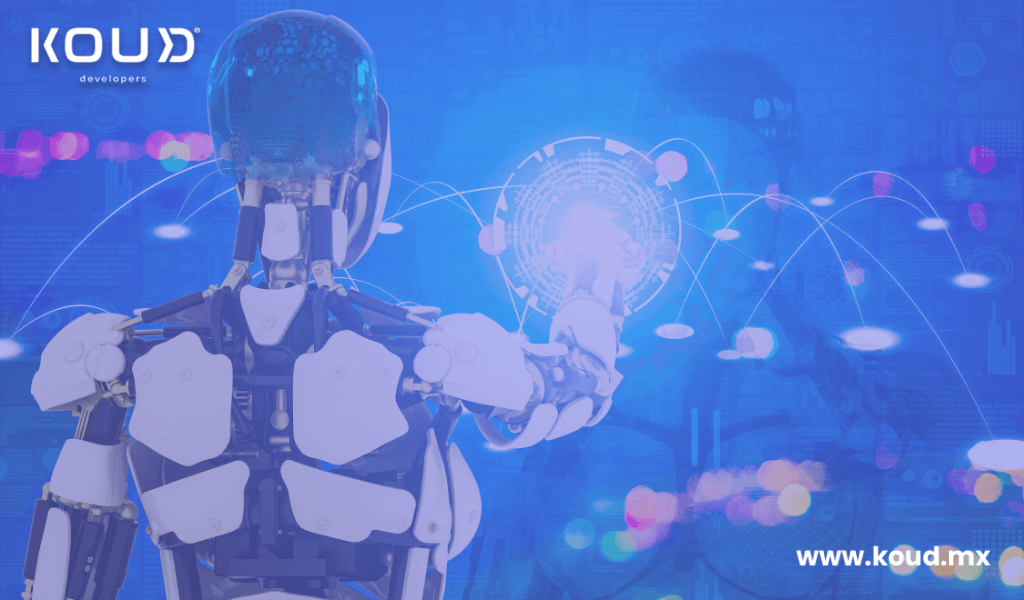Smarter Decisions: The Impact of AI on Business Strategy
AI as a Driver of Smarter Business Decisions
Artificial Intelligence (AI) has emerged as a catalyst for transforming many areas of modern business. What was once a tool limited to technical and repetitive tasks is now a technology that helps companies make smarter decisions and optimize their business strategies. From improving operational efficiency to forecasting market trends, AI is redefining how organizations plan and execute their strategies. This article explores how AI is impacting business decision-making and how its integration is transforming planning and business growth.
The Impact of AI on Business Strategy
1. The Role of AI in Business Decision-Making
The use of AI in businesses is no longer limited to automated tasks or simple data analysis. AI is now fundamental in strategic decision-making, helping business leaders better manage uncertainty and increase the accuracy of their choices. By analyzing large volumes of data and uncovering hidden patterns, AI enables companies to make real-time, data-driven decisions, increasing the likelihood of success.
For example, AI algorithms can predict changes in consumer behavior, identify untapped market opportunities, and optimize supply chains. This data-driven approach minimizes risk and gives businesses a competitive edge by enabling more informed and faster decisions.
2. Applications of AI in Business Strategy
AI has a profound impact on several key areas of business strategy. Some of the most common applications include:
Predictive Analytics
AI-powered predictive analytics use historical data to forecast future trends and consumer behaviors. This ability is crucial for businesses to adapt their marketing strategies, adjust inventory, or foresee potential supply chain disruptions. For instance, retail companies use AI to predict product demand and avoid overstocking or stockouts.
Process Optimization
AI is revolutionizing operational optimization in businesses. From improving factory efficiency through predictive maintenance to automating administrative processes, AI ensures that operations run smoothly and are continuously optimized.
Customer Service
AI-driven chatbots now go beyond handling simple inquiries; they can better interpret customer needs and provide personalized solutions. This enhances the customer experience while freeing up employees to focus on higher-value strategic tasks.
Risk Management
In the financial sector, AI is used to analyze large datasets and detect patterns that could indicate future risks. AI algorithms help companies make safer decisions, such as avoiding credit risks, preventing fraud, and anticipating market fluctuations.
3. Faster and More Accurate Decision-Making with AI
One of the greatest benefits of AI is its ability to speed up decision-making processes. AI algorithms can process data in a fraction of the time it would take a human, allowing companies to act quickly in dynamic markets. This is especially important in industries like e-commerce, where conditions change rapidly, and timely decisions can mean the difference between success and failure.
Moreover, AI helps reduce human bias in decision-making. By relying on objective data rather than intuition or emotions, business decisions can be more impartial and well-grounded. This not only improves accuracy but also builds trust in the decisions made by business leaders.
4. How AI Drives Personalization and Business Growth
AI’s ability to personalize experiences is one of its most valuable aspects for businesses. Today’s customers expect personalized experiences, whether in online interactions, shopping, or customer service. AI analyzes user data to offer tailored recommendations and product suggestions based on their preferences and past behaviors.
Platforms like Amazon and Netflix have mastered this approach, using AI algorithms to adapt content and suggestions for each individual user. This level of personalization has proven to be crucial in improving customer retention and boosting sales by creating a more engaging and personalized experience that fosters trust and loyalty.
5. Challenges in Implementing AI in Business Strategy
Despite the numerous benefits of AI, implementing it in businesses is not without challenges. One of the most common obstacles is the lack of technical skills within organizations. Implementing AI solutions requires specialized talent in areas such as data science, software engineering, and data management.
Another challenge is the initial cost of adoption. While AI can generate significant benefits in the long run, companies must be willing to invest in technological infrastructure, training, and development to properly implement these tools.
Additionally, ethics and privacy are growing concerns when it comes to the use of AI in business. Companies must ensure that they are using data responsibly, respecting customer privacy, and ensuring that AI-driven decisions do not perpetuate bias or discrimination.
6. The Future of AI in Business Strategy
The future of AI in business looks promising, with more advances making it easier to integrate AI into daily operations. AI is expected to continue improving companies’ ability to predict market changes, adapt quickly, and optimize their processes.
Moreover, with the advancement of emerging technologies like Explainable AI, businesses will be able to better understand how algorithms make decisions, increasing transparency and facilitating the adoption of AI in more areas of business.
AI integration will also expand beyond operational optimization to include areas such as talent management, where algorithms can identify patterns in employee performance, helping leaders make decisions about promotions and professional development.
In conclusion, AI is revolutionizing business strategy, enabling organizations to make faster, more accurate, data-driven decisions. From predictive analytics to customer personalization, AI is optimizing all aspects of business operations and creating new growth opportunities. However, as AI continues to evolve, it will be crucial for companies not only to adopt the technology but also to ensure that its implementation is ethical, transparent, and aligned with long-term goals.

